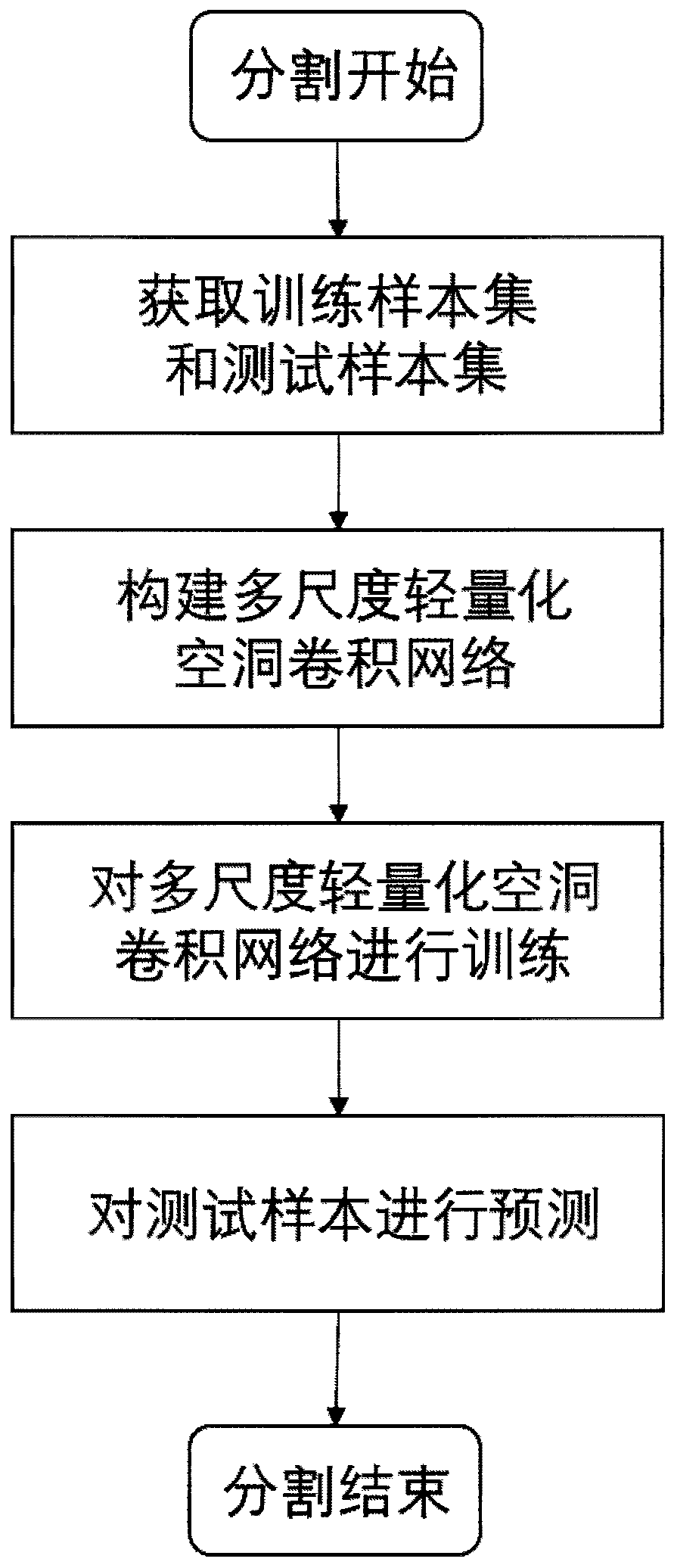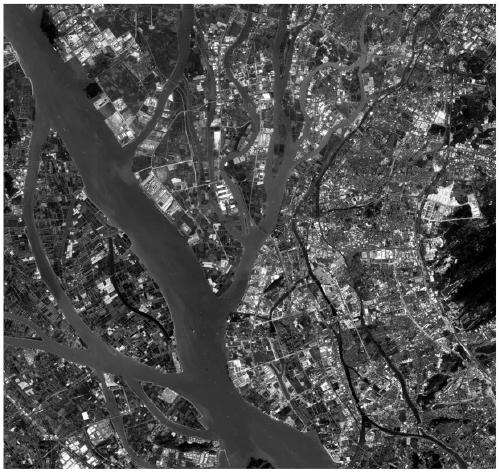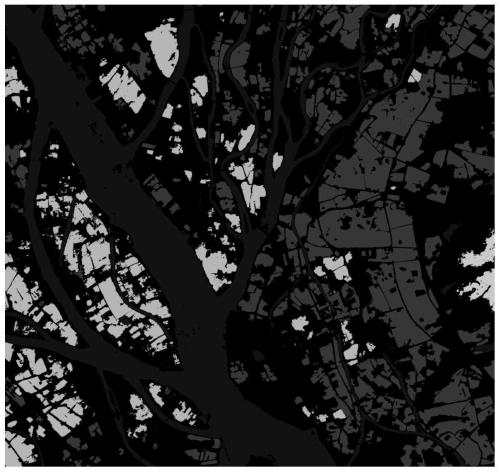Optical remote sensing image segmentation method based on multi-scale lightweight hole convolution
An optical remote sensing image and lightweight technology, which is applied in the field of image processing, can solve the problems of large network storage space, large amount of parameters, complex network parameters, etc., and achieve the effect of reducing the number of parameters, increasing the speed, and improving the segmentation accuracy
- Summary
- Abstract
- Description
- Claims
- Application Information
AI Technical Summary
Problems solved by technology
Method used
Image
Examples
Embodiment Construction
[0025] The embodiments and effects of the present invention will be further described below in conjunction with the accompanying drawings.
[0026] refer to figure 1 , the implementation steps of this embodiment are as follows:
[0027] Step 1, obtain training sample set T and test sample set V.
[0028] 1.1) Obtain the optical remote sensing image dataset GID for segmentation from the public website. The plot includes six categories: buildings, farmland, water, forest, grassland, and background;
[0029] 1.2) Cut the acquired optical remote sensing image data set GID, cut it into 512×512 pictures and save them locally, and save the optical remote sensing image data and class label data into two folders, Images and Labels, respectively . To facilitate subsequent training use;
[0030] In this experiment, 80% of the data in Images and the corresponding data in Labels are selected as the training sample set T, and the remaining 20% of the Images data is used as the test s...
PUM
 Login to View More
Login to View More Abstract
Description
Claims
Application Information
 Login to View More
Login to View More - R&D
- Intellectual Property
- Life Sciences
- Materials
- Tech Scout
- Unparalleled Data Quality
- Higher Quality Content
- 60% Fewer Hallucinations
Browse by: Latest US Patents, China's latest patents, Technical Efficacy Thesaurus, Application Domain, Technology Topic, Popular Technical Reports.
© 2025 PatSnap. All rights reserved.Legal|Privacy policy|Modern Slavery Act Transparency Statement|Sitemap|About US| Contact US: help@patsnap.com



